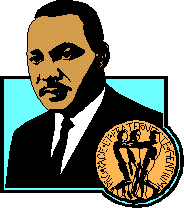The Other Side of the Mountaintop
Scholars Assess Nation's Progress--And an Icon's Rougher Edges--Four Decades After Assassination
Forty years after King was gunned down by an assassin in Memphis, it is this sharper-edged figure who has come into focus again. To mark today's anniversary, several scholarly reports have been released charting the nation's uneven social and economic progress during the past 40 years. Some scholars and former King associates are using the occasion to zero in on the two issues--war and poverty--that were consuming him at the time of his death.
Both have particular resonance now: The United States is engaged in a war in Iraq that has grown increasingly unpopular, and the poor--despite the concerns highlighted by Hurricane Katrina and the subprime mortgage crisis--are as voiceless as they were in King's day, advocates contend.
"His challenge was much bigger than being nice," said Taylor Branch, author of a three-volume history, "America in the King Years." "It was even bigger than race. It was whether we take our national purpose seriously, which is the full promise of equal citizenship."
People who seek change on Indian issues--e.g., mascots and stereotypes--often get criticized for criticizing. "You're just being PC"..."don't you have anything better to do?"..."stop making a mountain out of a molehill"...etc.
King's life stands as a rebuke to those who say we shouldn't criticize the status quo. The Nobel Peace Prize winner and I say we should.


No comments:
Post a Comment